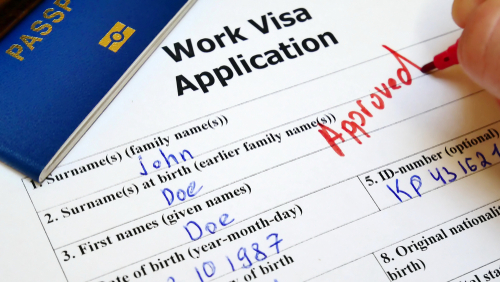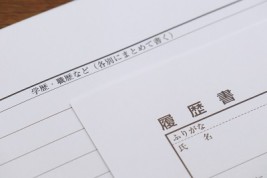The trend of side-jobs is getting hot in Japan now, so the number of foreign IT engineers who want to work side-jobs is also increasing.
Did you know that foreign IT engineers are able to work side-jobs legally? Also, what are the conditions within the company and the residency status?
Since there are detailed procedures to be done, the conditions and precautions that foreign IT engineers should follow in the case of working a side job are summarized and introduced in this article.
Contents
- 1 1.Foreign IT Engineer’s Side-jobs
- 2 2.Are Side-jobs permitted under the Work regulations? Banned?
- 3 3.Is It Permitted According to the Status of Residence to do Side-jobs?
- 4 4.About the Application for Permission to Engage in an Activity Other than Permitted
- 5 5.Foreign Engineer’s Side-jobs: What to Do in Case of a Problem?
- 6 Conclusion
1.Foreign IT Engineer’s Side-jobs

There are two obstacles when a foreign engineer tries to do a side job.
・Does the company will allow it due to the company’s work rules?
・Does the status of residence allows it?
Each would be a problem.
If these two obstacles can be overcame, foreign IT engineers will be able to work side-jobs, but we will explain the precautions and procedures related to employment rules and the status of residence.
2.Are Side-jobs permitted under the Work regulations? Banned?

Foreign IT engineers, have you ever confirmed if there are any provisions regarding side-jobs in the work regulations?
Work regulations and the consequences of its violations
Work regulations are a rulebook for employees of the company, in which you can also find the provisions regarding side-jobs.
Of course, it applies to employees of the company regardless of whether they are foreign nationals or not.
Violations of work rules may result in disciplinary actions. Specifically, if you violate the rules of employment because you performed a side-job without authorization, disciplinary sanctions will be strictly enforced, which may go from penalty salary reduction to dismissal, which will be punished according to the degree of disruption of trust with the company. From strict caution to the reduction of wages and dismissal depending on the degree of disruption of the trust relationship with the company.
Side jobs: they were mostly banned before, currently most of them are allowed
Traditionally, the work regulations in Japan regarding side-jobs said that “employees were obliged to concentrate on their duties and must not do side jobs.” Thus, in some workplaces where the employment rules have not yet lifted the ban on side-jobs, to do side-jobs will be difficult.
However, the work regulation that is increasing now is to “permit side-jobs that would be allowed by a permit system, under specified conditions”, and the number of cases where side-work is banned uniformly is gradually decreasing. The legal system has also been amended to make it easier to work side-jobs.
Examples of what is defined in the work regulations as a condition for permitting side-jobs
Common examples of the conditions are as follows.
For example, the conditions for side-jobs may be specified as follows:
- It is a Permission system, so you need to submit an application/
- Not to violate the prohibition to work for a competitor. (do not work side-jobs with companies that compete in business or markets that benefit from rivals)
- Not to make use of time that may affect your main job.
- Notify the company about what side-job you will do. The details of the report are determined, such as time and place of work, so be sure to follow them.
- Regularly report about the side-job.
*The above contents are representative, please refer to the employment rules of the company where you are enrolled for specific contents.
If the conditions about side-jobs are specified in the work rules, and if you do not meet all the conditions, the side-job will be a violation of the work rules and you will be subject to disciplinary sanctions.
In particular, if you perform a side-job that favors a rival company you will destroy the relationship of trust with the company, so the disciplinary action can be as severe as being fired.
3.Is It Permitted According to the Status of Residence to do Side-jobs?

Foreign engineer’s side-job can be possible from the status of residence.
Beware of non-qualified activities
The majority of foreign engineers have “technical status” as their “resident status.”
Except in some cases where the status of residence doesn’t have any limitation to activities that can be performed in Japan, like the “Japanese spouse” status. Foreign engineers are, in principle, only allowed to work in their resident status. In addition, in general, if you are performing a side-job that is not a work within the qualification, you must apply for an activity outside the qualification.
However, there are no restrictions on how many companies you can work with to or how long you work for a job within the status of residence. Besides, it is not necessarily prohibited to take other jobs within the scope of the “technical” status of residence.
Therefore, please refer to the following examples of cases where a side-job is recognized as a job within the same qualification and cases where it is not recognized, and consider whether it is necessary to apply for “Permission to Engage in Activity other than that Permitted under the Status of Residence Previously Granted.”
Examples of side jobs recognized by the status of residence “technology”
・Engineers teaching programming once a week
=>Employment within the scope of technical work so it is within the scope of the status of residence.
・Engineers regularly contribute to the latest technical conditions.
=>Accepted in the same way as the instructor, example above.
・Engineer volunteers to assist an electronics workshop for children (free of charge)
=>Free volunteer activities are recognized as qualifying activities.
Examples of side jobs that are not recognized by the status of residence “technology”
・Engineers starting their own businesses
=>Starting a business is an activity recognized with a business management visa and is considered to be an activity outside the scope of the status of residence. Therefore, it is necessary to apply for permission to engage in an activity other than the permitted.
・Engineers working a part-time job at a convenience store
=>In principle, the simple labor of foreign nationals is prohibited, and the current status of residence is not permitted.
In addition, if you stop working when you have obtained your status of residence, you should be re-employed within the same qualification within 3 months, and if you do not submit the notification within 14 days, your status of residence will be expired. You need to be careful. For this reason, when performing a side-job, it is necessary to maintain a position within the permitted status of residence.
4.About the Application for Permission to Engage in an Activity Other than Permitted

For example, if an IT engineer gives a lecture at a language school, the language school lecturer is identified as “international business”, so if you apply for an activity outside the qualification, you can get permission.
The following procedures are required to apply for permission to engage in an activity other than that permitted.
- A written application for permission to Engage in an Activity other than that Permitted
- Passport
- Residence card
You can obtain the Application for Permission to Excluded Activities at the Immigration Bureau or download it from the Immigration Bureau website.
Conditions may apply to the permission, like not quitting the main job when obtaining the permission to engage in an activity other than permitted.
The conditions for permission to apply are the followings.
- Not to quit the original job
- Not to obstruct the original job
- To do unskilled labor is prohibited
Summary of points where foreign engineers are allowed to work side-jobs
For a side job to be accepted, one of the following conditions must be met.
- Must be within the scope of the company’s working regulations and within the scope of the status of residence. (For employment outside of resident status, it is necessary to apply and obtain the permission.)
- Obtain permission for activities outside the status of residence. * Permitted if the following three conditions are satisfied.
- Not to quit the original job
- Not to obstruct the original job
- To do unskilled labor is prohibited
5.Foreign Engineer’s Side-jobs: What to Do in Case of a Problem?

Even if you understand the above explanation, if the foreigners are not sure about the side-job, they want to start by themselves, consulting a person who knows the rules, an expert who knows the rules very well can save time and it can be a huge help.
Accordingly, consult the following specialized departments and experts.
- For work rules, contact the human resources department of the company.
- Regarding the residence status and visas, contact a public official.
Both the Human Resources Department and the public officials specializing in alien registration and visa, bilingual support is now available in many offices, which makes it easier for consultation.
Conclusion
As explained above, if there are work regulations that allow side-jobs that do not affect your main job will likely be permitted. Of course, the status of residence is an issue, but if you are working within your current qualifications, or if the conditions of the application are met even if it is a non-qualified activity, you could use a permission.
However, there are many procedures such as notification to the Human Resources Department of your company and notification to the Immigration Bureau.
Notification to the Immigration Bureau is handled exclusively by the public official, as in the case of obtaining a status of residence, so if you do not have much time and want to reduce the office work, it may be a good idea to ask a public official regarding side-jobs.









